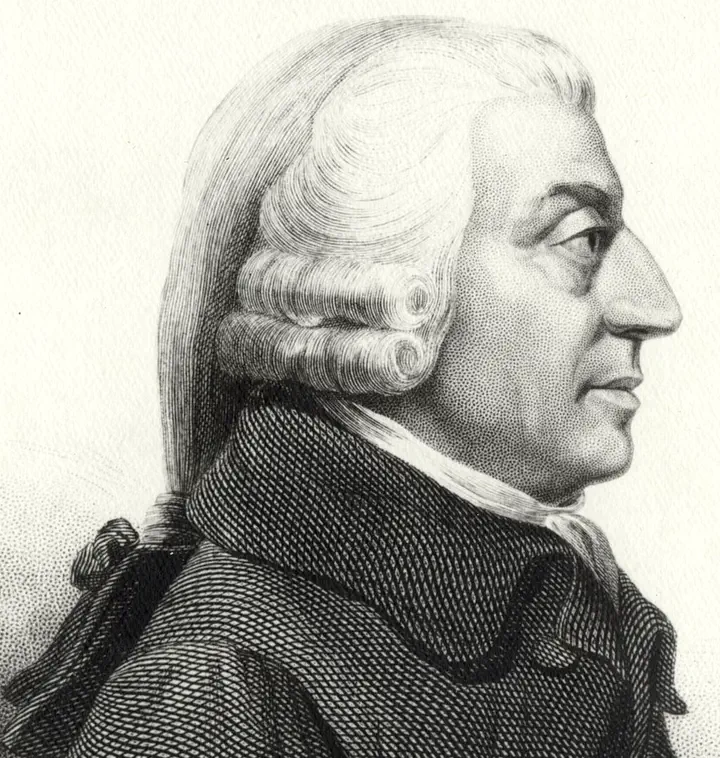Smith’s Balanced Judgement on the Desire for Wealth and Greatness

The fact that pursuing one’s self-interest is common among human beings has been obvious since the dawn of time. However, the idea that an individual, by acting to improve only his or her own condition, unintentionally contributes to the common good of the whole society, is a relatively modern concept. Adam Smith was a Scottish moral philosopher and economist who described the main principles of human behavior in society in his book The Theory of Moral Sentiments, and he used his observations as the underlying assumptions to his later work An Inquiry into the Nature and Causes of the Wealth of Nations, where he presented the mechanisms by which acting in one’s self-interest translates into the economic and political development of a nation.1
The problem of human desire for wealth and greatness connects these two books, even though it is addressed for the two distinct purposes. I have found that Smith’s balanced judgement on the desire for wealth and greatness in his Theory of Moral Sentiments, where he explains that this desire is not necessarily a vice, led him to make the central assumption of The Wealth of Nations, which says that the motivation to better one’s own condition is positive and natural for humans, and this assumption allowed him to present the positive consequences of self-interested behavior for society. My essay is an attempt to present how certain insights from The Theory of Moral Sentiments can be used to trace the origin and better understand the context of some concepts in The Wealth of Nations.
Access the paper here.
-
Adam Smith, The Theory of Moral Sentiments, 1759 (Oxford, England: Clarendon Press; New York, NY: Oxford University Press, 1979); Adam Smith, An Inquiry into the Nature and Causes of the Wealth of Nations, 1776 (Oxford, England: Clarendon Press; New York, NY: Oxford University Press, 1976) ↩︎